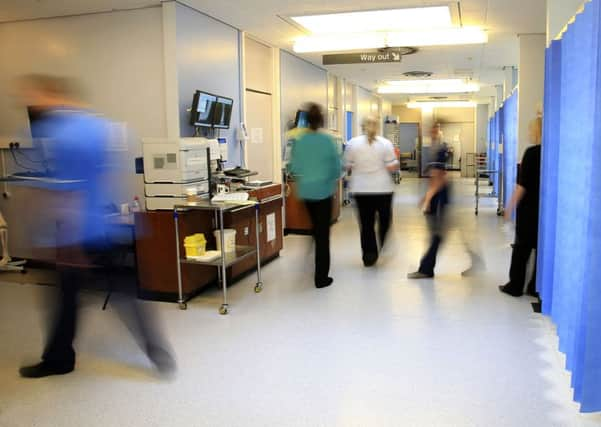Overworked and over-tired trainee doctors '˜not competent to treat many patients'


A poll of 55,000 doctors in training for the General Medical Council found that 43 per cent described their daytime workload as “very heavy” or “heavy”.
This rose to 78pc of doctors in emergency medicine, with workloads in all areas having got worse over the last five years.
Advertisement
Hide AdAdvertisement
Hide AdMore than half of trainee doctors said they regularly worked beyond their agreed rota hours, and up to a quarter said their weekly working patterns left them short of sleep.
The report also found that doctors with the highest workloads were more likely to report patient safety concerns.
It concluded: “This has worrying implications for the safety of patients, doctors in training, and public confidence. Our standards are clear that doctors in training should not be expected to find themselves in such a situation.”
The medical council warned that many doctors in training were working under such significant and growing pressure that it threatened the training they needed to become GPs and consultants.
Advertisement
Hide AdAdvertisement
Hide AdChief executive Charlie Massey said there was a “tremendous amount” of high quality training across the UK. But he added: “We know the very real pressures our healthcare services are under and appreciate the challenges organisations involved with the training of doctors are facing, but it is vital training is not eroded.
“Those responsible and accountable for the delivery of medical education locally must take appropriate steps to ensure the training of doctors remains protected. Medical training is so often a bellwether for the quality and safety of patient care and patients are directly at risk if support and supervision of doctors in training is inadequate.”
Professor Neena Modi, president of the Royal College of Paediatrics and Child Health, called the results of the survey a “stark warning of the risks to patient safety and care as a consequence of the increasing pressures faced by junior doctors in the NHS”.
She said: “An increase to the number of trainees is needed, along with proper funding for the NHS. I urge Government to hear this latest stark message from the GMC and act quickly to support trainees to access the training they need in a properly funded health service.”
Advertisement
Hide AdAdvertisement
Hide AdDr Pete Campbell, the British Medical Association’s junior doctors committee chairman, said: “Patients and the public may be shocked by these findings, but no junior doctor will be surprised. It is still far too common that junior doctors are left sleep-deprived after regularly working beyond their rostered hours, on rotas that are desperately short of doctors.
“We cannot accept a situation where vital training time is being sacrificed in the face of rising pressures on services. This is a short-sighted approach that is already having an impact on the quality of patient care.”
Professor Wendy Reid, director of education and quality at Health Education England, said a new code of practice would improve communication and planning of trainee’s placements.
She added: “We know that being a junior doctor is challenging and stressful without any additional pressures such as poor rota planning, unsupportive senior colleagues and lack of family time.”